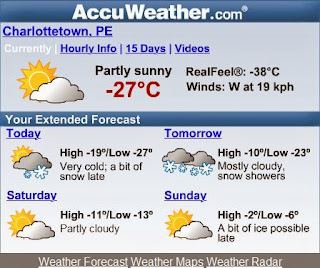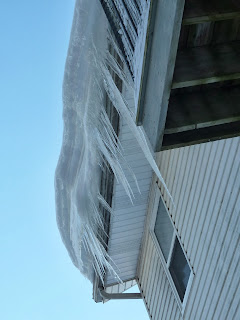15 December 2014
Phildelphia (City of Brotherly Love) - We Are Augustines
from the mind of
Perfect Virgo
0
remarks
![]()
16 November 2014
the man in the shed
from the mind of
Perfect Virgo
0
remarks
![]()
06 November 2014
she
she speaks the truth;
as authentic as the day is long.
she is a whirlwind;
falls asleep when she's done.
she bakes me biscuits;
eats only a nibble herself.
she's one tough cookie;
comes undone in my arms.
she is incredibly small;
has the heart and soul of a tigress.
she has my back;
will defend me with tooth and claw.
from the mind of
Perfect Virgo
1 remarks
![]()
18 October 2014
the hurricane and the breeze
from the mind of
Perfect Virgo
0
remarks
![]()
09 October 2014
Dovetails
Extrovert Introvert
Meat eater Vegetarian
Wine Orange Juice
Loud Quiet
v Small v Tall
Talker Writer
Do-er Thinker
Impulsive Considered
Reactive Composed
Boomerang Languish
Busy Calm
Walker Runner
Canadian English
But that becomes inconsequential when each brings out shared traits in the other:
Traditional
Reliable
Private
Sensual
Honest
Comic
Romantic
Attentive
Loving
Caring
Dignified
Hygienic
Neat
2014... a good year.
from the mind of
Perfect Virgo
0
remarks
![]()
13 September 2014
flies, damn flies and statistics
from the mind of
Perfect Virgo
1 remarks
![]()
29 August 2014
black dog
The late grey day presses inky misery through hollow walls
where he lies, abandoned to the hungry hellhound of the night.
Loping on long legs, coat matted and alive with fleas, it leaps
and settles on his tired chest, amber eyes like stinking pus.
Outside, the unlatched gate (where beauty and her loving heart
departed) batters and bangs on screeching hinges, hopeless now.
He strains to lift his bones but the black beast, his burden, weighs down.
At daybreak, soaked in sleepless sweat, he shuts the blind, denies
entry to spectacular dawn. Glorious shards of diamond white
will daily spear and soon will pierce his gloom, just not today.
from the mind of
Perfect Virgo
2
remarks
![]()
15 August 2014
Prince Edward Island
Red plumes of dust behind my rolling wheels
are torn aloft by ever whipping winds.
In each field a leaning barn will lurk
behind a skirt of rippling grass.
Black rag crows flung between plowed furrows
caw then soar, now bank and dive
behind the tractor's wobbly wheels to
compete with gulls blown in from briny shores.
Red roof, white church, and crumbling homestead
with crooked mailbox and lupin ditch,
nestle under azure skies where great
eagles circle, beady eyes on land.
From a high green hill my eye can spy
the silver thread curving on blue sea;
a mooring rope lest this isle should float
beyond the pull of land and drift free.
Steel piles driven deep into bedrock
carry life and limb and cherished hearts,
over swirling white-capped waves, to these
home shores where time's footfalls gently press.
from the mind of
Perfect Virgo
4
remarks
![]()
21 July 2014
the beginning
from the mind of
Perfect Virgo
1 remarks
![]()
28 May 2014
divorcing my shoe
from the mind of
Perfect Virgo
1 remarks
![]()
20 May 2014
The Goldfinch, Donna Tartt
from the mind of
Perfect Virgo
0
remarks
![]()
02 May 2014
snooker, the art and the act
from the mind of
Perfect Virgo
0
remarks
![]()
18 April 2014
The Exorcist, William Peter Blatty
Reading in my mid fifties I can listen to large tracts on my iPod in the dead of night without (undue) alarm. We have to remember that the movie was an adaptation, a distillation of the plot into two hours. Inevitably it concentrated on the shocking. The novel stands comfortably by itself as a clever supernatural detective story which manages to explore faith, medicine and the overlap of psychiatric disorders with physical symptoms.
from the mind of
Perfect Virgo
2
remarks
![]()
09 April 2014
The Long Walk, Richard Bachman
from the mind of
Perfect Virgo
0
remarks
![]()
03 April 2014
The Gods of Guilt, Michael Connelly
from the mind of
Perfect Virgo
2
remarks
![]()
23 March 2014
Dirty Pretty Things, Soton Uni 5 May 2006
By the time the final number comes I am completely overheating, dehydrated and close to fainting. I have been swept from one side of the stage to the other, been at the front then pushed backwards. The body heat is now unbearable and my eyes sting from my biting, salty sweat. Just as I am about to be overwhelmed a passage opens to my left and I stumble blindly into a brief gap. I lean against the side wall and put my head in my hands. Slowly I regain my breath as sweat streams down my face and neck. My ribs hurt like hell and I know they are bruised, if not cracked.
The band returns for an encore but I am beaten. I continue my slow recovery stage left and I am thinking when people ask in years to come, “Where were you when Dirty Pretty Things played their debut tour?” I’ll say, “I was there mate, soaked and filthy and stinking.” Maybe they will just say, “Dirty who…?"
The cold night air brings sweet relief and I meet Steve outside. “You were at the front?” he quizzes, “that’s bloody rock and roll!”
When you are too old to feel the noise like this you really are too old for life. Oh and the music? Yes, punk rock with style and attitude.
from the mind of
Perfect Virgo
2
remarks
![]()
13 March 2014
family history and the aerial detective
Peckham, South London, was home to the single largest contingent of my Victorian ancestors. One hundred and fifty years ago Peckham was a rural village, nestling south of the River Thames, a two hour horse and cart ride from the teeming metropolis of London. It's streets were separated by open fields where market gardeners grew melons, soft fruit and a range of vegetables.

Despite surviving well into the twentieth century and some even to this day, Peckham's elderly housing stock did not attract the attention of late nineteenth century photographers, so I have been unable to find roadside images of Maria Terrace. Victorian Philanthropists toured the area and their reports make grim reading, so I can imagine how the area must have looked but that's not the same as actually seeing.
On a whim I searched the site Britain From Above, a large online archive of high resolution aerial photographs taken in the 1930s. There are half a dozen plates covering the suburb Peckham from various angles, at a height of perhaps a thousand feet. Having studied ancient and modern maps of the area for two decades, I am very familiar with the road layout. In a view looking eastward, I soon spotted the right-angle canal-turn where the Grand Surrey Canal feeds into its Peckham branch. Following an inferred gap between rows of buildings I reached a crossing which carried horse-drawn traffic over the canal and which I knew was right beside Maria Terrace.
Detail in the image was extremely distant and the houses mere dots but I was sure of the neighbourhood. For pre WW2 the resolution in these images is astonishing and I was able to zoom right in and positively identify a short terrace of 13 dwellings that had to be Maria Terrace (blue arrow). This is a tiny corner of the image at full zoom.


from the mind of
Perfect Virgo
6
remarks
![]()
08 March 2014
the pawnbroker's balls
,+Whitechapel,+London.jpg)

from the mind of
Perfect Virgo
0
remarks
![]()
19 February 2014
Reading and Writing
Life After Life, Kate Atkinson 5/5
Shutter Island, Dennis Lehane 4/5
from the mind of
Perfect Virgo
1 remarks
![]()
16 February 2014
The Laughing Policeman, Charles Penrose Cawse (1873-1952)
from the mind of
Perfect Virgo
0
remarks
![]()
02 February 2014
Jurassic Park, Michael Crichton

from the mind of
Perfect Virgo
0
remarks
![]()
22 January 2014
Jaws, Peter Benchley 1974

from the mind of
Perfect Virgo
2
remarks
![]()
16 January 2014
Salem's Lot, Stephen King

from the mind of
Perfect Virgo
0
remarks
![]()
13 January 2014
Family History in the techonolgical era.
Well this is a different slant on the family history quest and one which I couldn't have dreamed of back in the nineteen eighties. I can search British digital indexes from Charlottetown on my laptop and bring up probable matches over a half century span in mere seconds. A feat which would have taken days of scouring through handwritten ledgers. I can view streets, houses and faces, all from a great distance. It's even possible to submit a DNA swab and have my ancestry analysed. I could learn from which gene pool I come and I could potentially hook up with international fifteenth cousins.
It's cheap these days at $99, but the hidden price is that your result set includes medical traits and susceptibilities. Information which not everyone is ready for yet.
from the mind of
Perfect Virgo
0
remarks
![]()
10 January 2014
Toy Story

"There's a snake in my boot!"
from the mind of
Perfect Virgo
0
remarks
![]()
02 January 2014
Winter in Charlottetown

from the mind of
Perfect Virgo
4
remarks
![]()











.jpg)
.jpeg)




